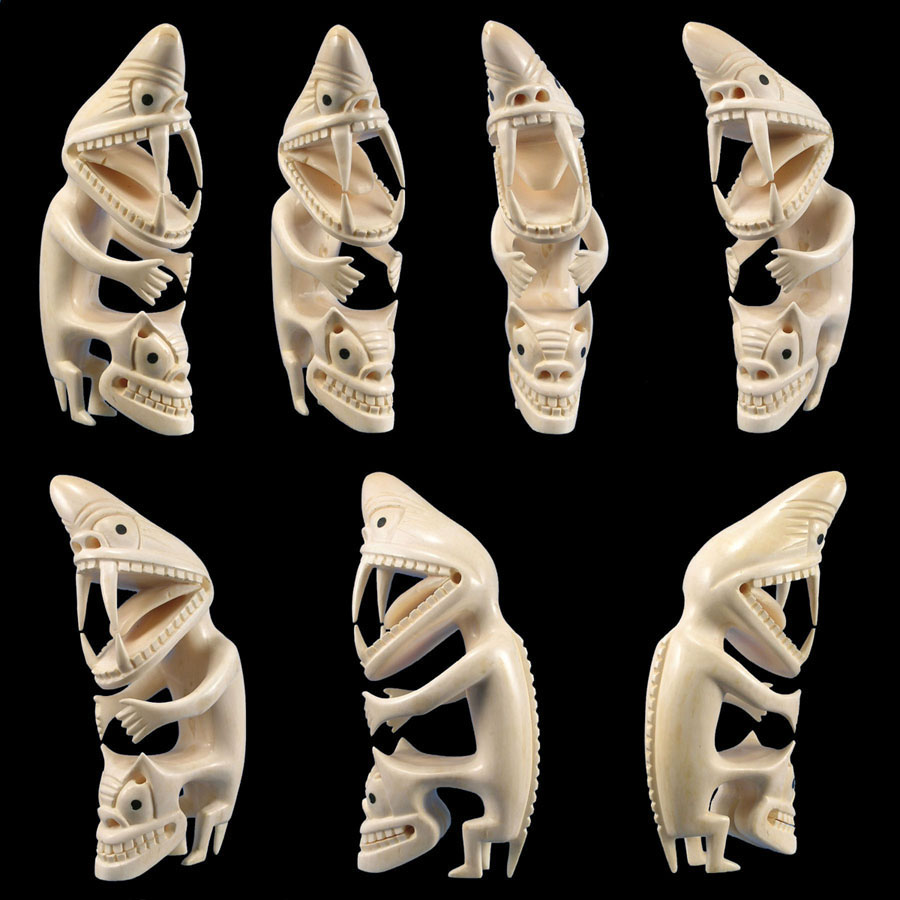Outstanding Inuit tupilak #7: A Masterpiece of Greenlandic Inuit Art
Overview:
- Dimensions: 7″ high, 2″ wide, 3.2″ deep
- Material: Carved from a sperm whale tooth
- Artist: Unknown
- Status: SOLD
The Significance of Tupilaks in Greenlandic Inuit Art
Historical Context
Tupilaks play a vital role in Greenlandic Inuit art, with a rich history spanning several centuries. Traditionally, Inuit shamans created these artifacts to cast spells on their enemies. By crafting a tupilak from natural materials, they invoked misfortune upon their adversaries. Therefore, these artifacts were considered powerful and mystical.
Evolution and Modern Interpretations
In the beginning, early European explorers became fascinated by the mystical stories of tupilaks. Consequently, they encouraged the Inuit to carve representations from sperm whale teeth. Over time, the variety of materials used for tupilaks expanded. As a result, artisans now carve tupilaks from:
- Narwhal
- Walrus tusk
- Wood
- Caribou antler
This diversification has preserved the art form and, in addition, increased its value as a collectible.
Artistic Characteristics of Modern Tupilaks
Typically, modern tupilaks feature distinct skeleton parts or rib indications, symbolizing mythical figures or spirits of the dead. Moreover, these motifs highlight the dual nature of tupilaks as bringers of misfortune and entities that can be vanquished. Additionally, tupilaks merge human and animal forms, showcasing the Inuit’s spiritual connection between humans and animals.
Example: Tupilak #7
Tupilak #7 exemplifies this tradition. Standing at 7 inches tall, it features intricate carvings from a sperm whale tooth, with fangs, numerous teeth, and a tongue. Furthermore, the detailed craftsmanship and the unknown artist’s skill highlight the enduring legacy and cultural significance of tupilaks in Greenlandic Inuit art.
Explore More
To further explore the fascinating world of tupilaks, you can visit these resources:
In summary, this documentation provides insights into the historical and cultural background of tupilaks, emphasizing their role in Inuit traditions and their evolution as collectible art pieces.

Artist unknown Inuit
Ivory tupilak –
SOLD

